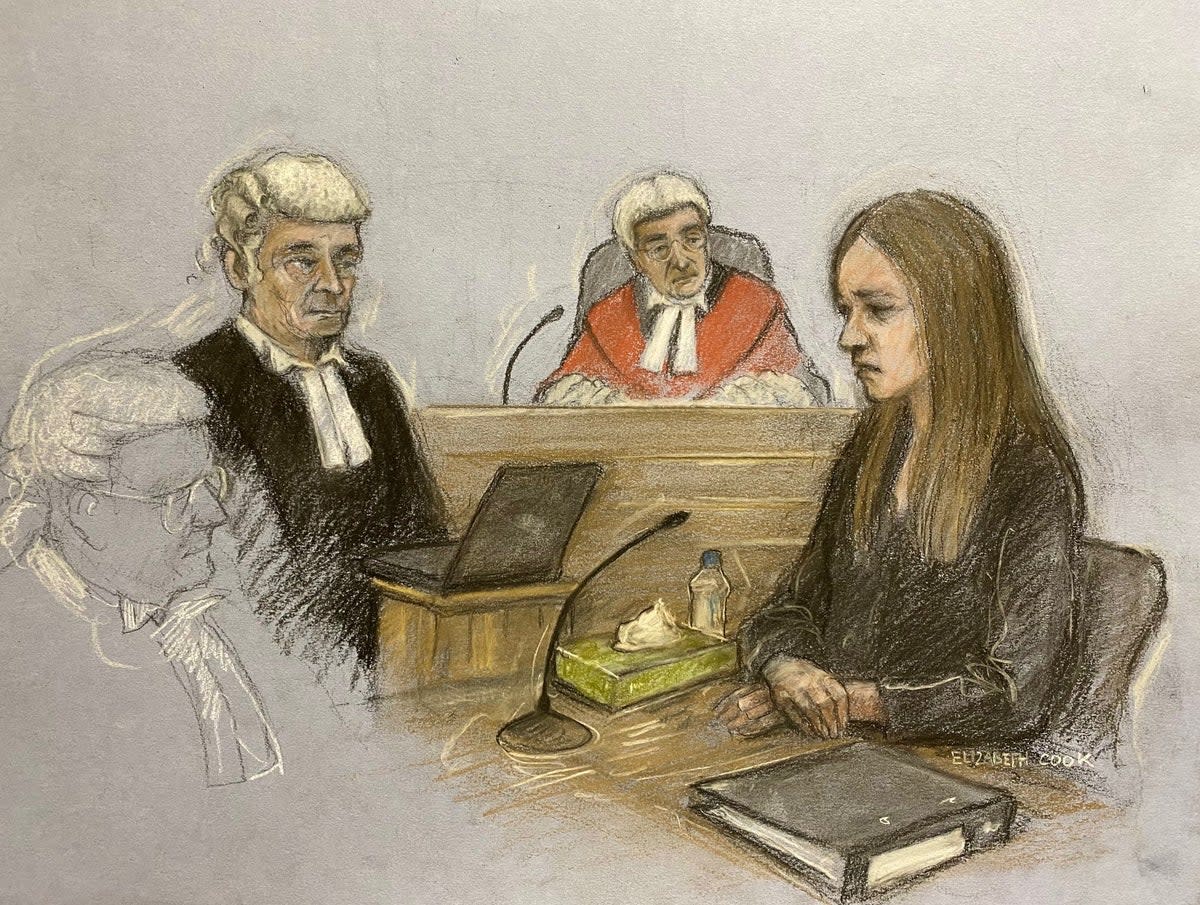Free therapy offered to jurors after traumatic trials like Lucy Letby's

Free counselling will be offered to jurors whose mental health suffers during traumatic trials, as part of a new Government scheme.
The pilot will offer six free sessions as well as access to a 24/7 telephone helpline for support, advice and information.
The Ministry of Justice, which announced the programme on Wednesday, used the Lucy Letby trial as an example of trials that can significantly affect people.
Letby, a 34-year-old nurse, was sentenced to 14 whole life orders after she was convicted of the murders of seven babies and the attempted murders of six others last August.
The ministry specifically mentioned targeting jurors on cases involving disturbing evidence on murder, abuse and cruelty.
Currently, jurors who are impacted by what they have seen and heard in court are signposted to a GP or the Samaritans, but the ministry said this limited support can leave some feeling isolated.
The scheme will be rolled out this summer across 15 Crown Courts in England and Wales, namely London, Liverpool, Mold, Birmingham, Bristol and Teesside.
Senior Lecturer in Forensic Psychology at Manchester Metropolitan University, Dr Hannah Fawcett praised the announcement.
She said: “This pilot project is a positive first step in recognising some of the potential psychological challenges of participating in jury duty and supporting those who have been affected by distressing cases.
“I welcome the introduction of specialist wellbeing support for jurors, who play such an important role in creating a safe and fair society for us all.”
Similarly, Justice Minister Mike Freer said: “Juries are the cornerstone of the criminal justice system, and sitting on a trial is rightly regarded as the ultimate responsibility of an honest, law-abiding citizen.
“This pilot is an important step in assessing how we can best support jurors, who perform such a vital civic duty, often in complex, high-profile cases.”


